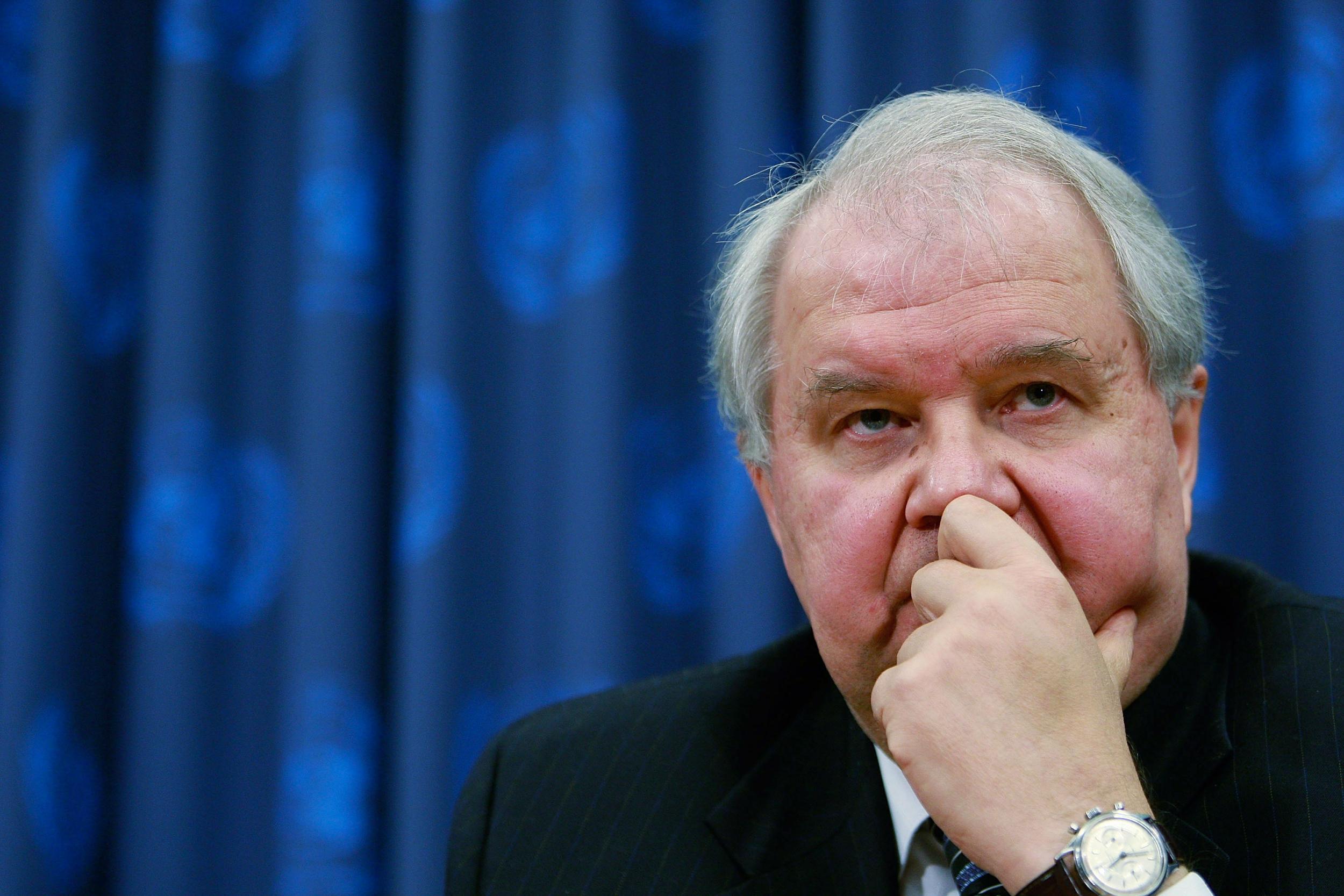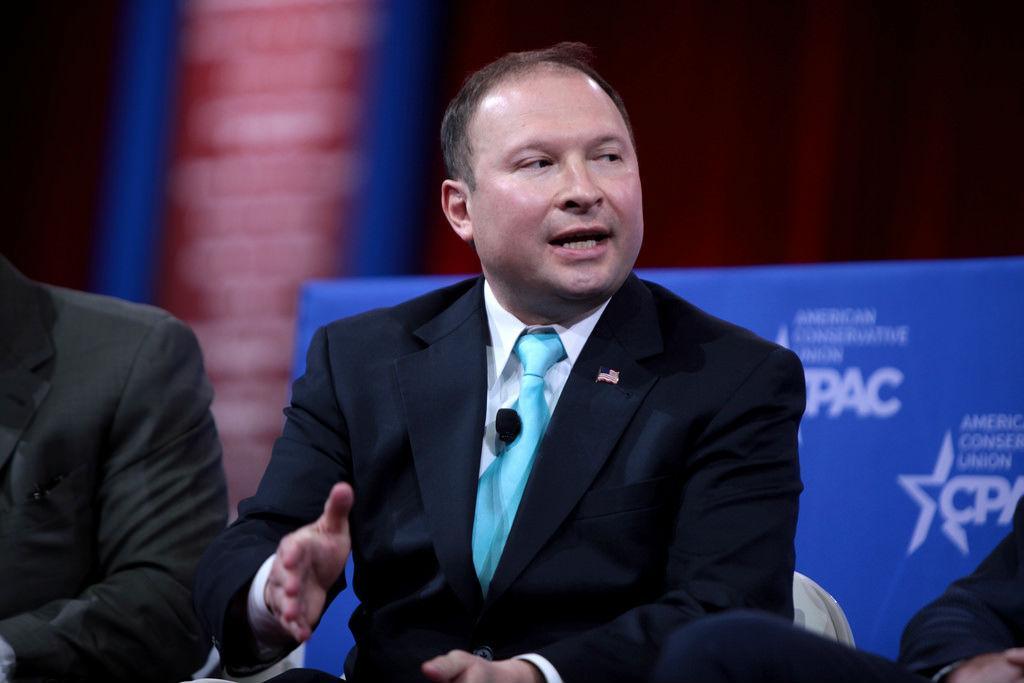Donald Trump campaign spoke with Russian ambassador about closer cooperation five months before election
Exclusive: Former adviser JD Gordon goes on record for first time about controversial conversation with Sergey Kislyak

Your support helps us to tell the story
From reproductive rights to climate change to Big Tech, The Independent is on the ground when the story is developing. Whether it's investigating the financials of Elon Musk's pro-Trump PAC or producing our latest documentary, 'The A Word', which shines a light on the American women fighting for reproductive rights, we know how important it is to parse out the facts from the messaging.
At such a critical moment in US history, we need reporters on the ground. Your donation allows us to keep sending journalists to speak to both sides of the story.
The Independent is trusted by Americans across the entire political spectrum. And unlike many other quality news outlets, we choose not to lock Americans out of our reporting and analysis with paywalls. We believe quality journalism should be available to everyone, paid for by those who can afford it.
Your support makes all the difference.A former adviser to Donald Trump has told The Independent he met with the Russian ambassador to the US five months before the election to discuss how Moscow and Washington could work together to tackle Islamist extremism if the New York tycoon became President.
The adviser, Jeffrey “JD” Gordon, said he spoke to Sergey Kislyak at the Republican National Convention in July about Mr Trump’s desire to reset the strategic relationship. He said he knew the Republican nominee was interested in whether the US military might work with Russia to combat Isis in Syria, though such specifics were not brought up.
“[We should] cooperate more against radical Islamic extremists; we should not have situations where people are coming from Chechnya to blow up the Boston marathon. We should listen to the Russians when they are warning us about terror suspects,” Mr Gordon said about his conversation. “This was about it. It was maximum five minutes.”

Mr Gordon was one of several figures, some of them senior people, to have conversations with Mr Kislyak both before and after the election. Jeff Sessions, a former Senator who now serves as Mr Trump’s Attorney General, also spoke with the Russian envoy, as did security adviser Mike Flynn, Jared Kushner and Trump campaign adviser Carter Page.
Several investigations are currently probing Russia’s alleged hacking of the 2016 presidential election in an attempt to benefit Mr Trump, and possible links between Moscow and people in Mr Trump’s camp. Mr Trump has dismissed such suggestions and said he has had no links Russian officials.
Mr Gordon, who served as a Pentagon spokesman from 2005 to 2009, portrayed the conversation on 20 July 2016 between himself and Mr Kislyak as innocuous and little more than a “diplomatic courtesy”. Yet it took place against a backdrop of no small political drama.
Two days after the conversation, and one day after the completion of the convention in Cleveland, Wikileaks released thousands of hacked emails from the Democratic National Committee (DNC).
The emails – apparently obtained by someone using the moniker Guccifer 2.0 – were deeply embarrassing to the DNC as they showed the supposedly neutral organisation’s clear preference for Hillary Clinton to be the party’s presidential candidate rather than her challenger, Bernie Sanders.
The leak forced the resignation of DNC chair Debbie Wasserman Schultz, one the eve of the Democratic National Convention in Philadelphia the following week. US intelligence reportedly concluded Guccifer 2.0 was linked to Russian intelligence, though Guccifer 2.0 denied this.
James Collins, a former US ambassador to Moscow, said he saw nothing unusual about a Russian envoy wishing to speak to both of the parties in an US election. He said it would have deeply worrying, however, if deals were being agreed with one side ahead of the election.
“The problem now is that [the Trump administration] is not coming clean about what it was doing,” he said. “There are so many issues about Trump’s dealing with Russia and this has been going on for a long time.”
He said the unwillingness of Mr Trump and others to provide more information about their dealings with Russia – and Mr Trump’s refusal to release his tax returns – was helping fuel conspiracy theories.
“If you don’t tell the truth, it will come out,” he said.
Mr Trump has long made clear his wish to improve the relationship between Russia and the US – something that tumbled to a decades-low during the administration of Barack Obama. During the campaign, Mr Trump spoke of potentially partnering with Russia against Isis – though Defence Secretary Jim Mattis said recently the US was not in a position “right now” for military collaboration.
Mr Trump also praised the leadership of Mr Putin and said it is good for the world, if he and the Russian leader get one. Critics have said Mr Trump has repeatedly refused to denounce human rights abuses in Russia, Mr Putin annexation of Crimea or his backing of pro-Russian rebels in eastern Ukraine.
Indeed, Mr Gordon was the individual responsible for ensuring the Republican Party’s official policy on Ukraine was in line with that of Mr Trump. One delegate had wished to insert language of calling for the provision of arms to Ukraine to help its troops combat the pro-Russian rebels.
After Mr Gordon’s intervention, the language was changed to “providing appropriate assistance” to Ukraine.
Mr Gordon said that when the Ukrainian ambassador learned of the development, he was “upset”. Yet he said it was not something he discussed with Mr Kislyak, insisting their conversation focused only on counter-terrorism issues.
“The only thing I bought up was was for having better relations with Russia, that we should not have things like the Tsarnaev brothers attacking the Boston Marathon,” he said.
“The FBI gave the Obama administration fair warning that Tamerlan Tsarnaev was in Dagestan getting radicalised. Nothing happened, and the Boston Marathon got blown up. He agreed.”
Last week, Mr Sessions was forced to recuse himself from overseeing the federal inquiry into Russsia’s alleged interference in the US election and its possible links to members of Mr Trump’s team, after it emerged he had twice met with Mr Kislyak.
He had previously told senators while under oath that he had never done so. Yet one of the meetings was at the RNC.
Two other senior members of Mr Trump’s team, former general Mr Flynn and policy adviser Mr Kushner, met Mr Kislyak in December to establish initial contacts with the Russian government.
Mr Flynn was in January forced to resign as Mr Trump’s national security adviser after it emerged he had lied about a conversation he had with Mr Kislyak – prior to Mr Trump’s taking office – at which the issue of sanctions was discussed.
Join our commenting forum
Join thought-provoking conversations, follow other Independent readers and see their replies
Comments